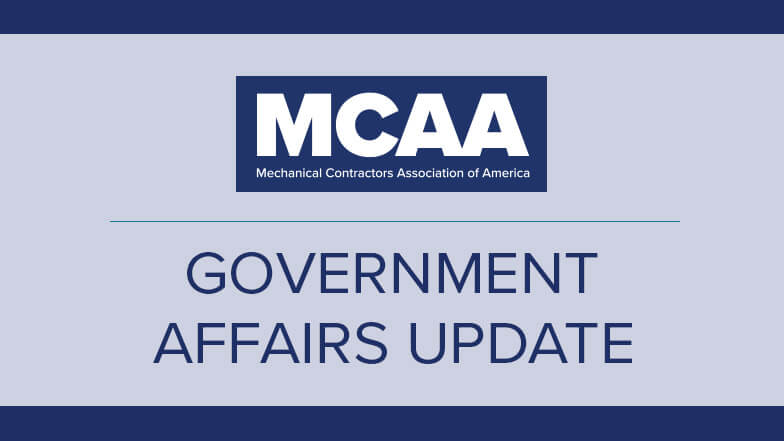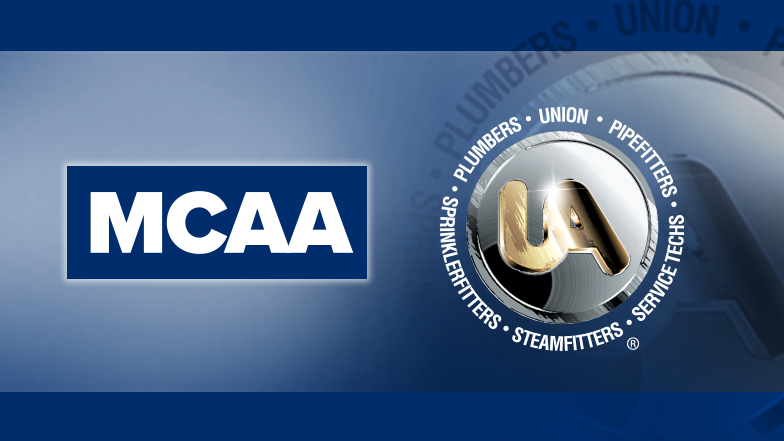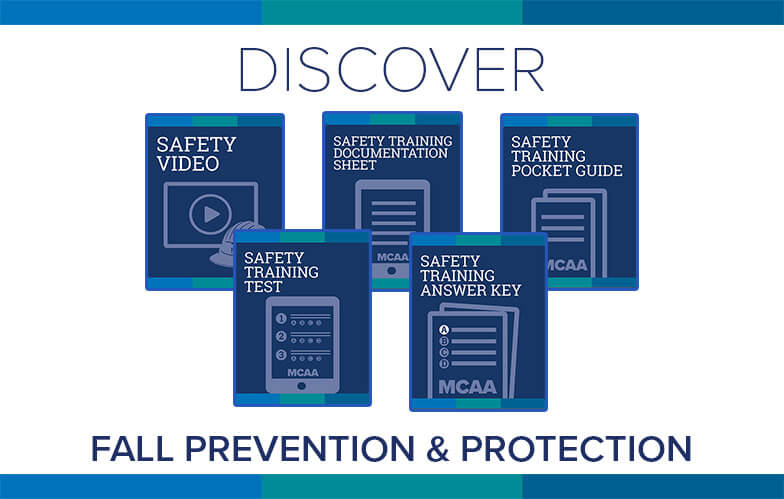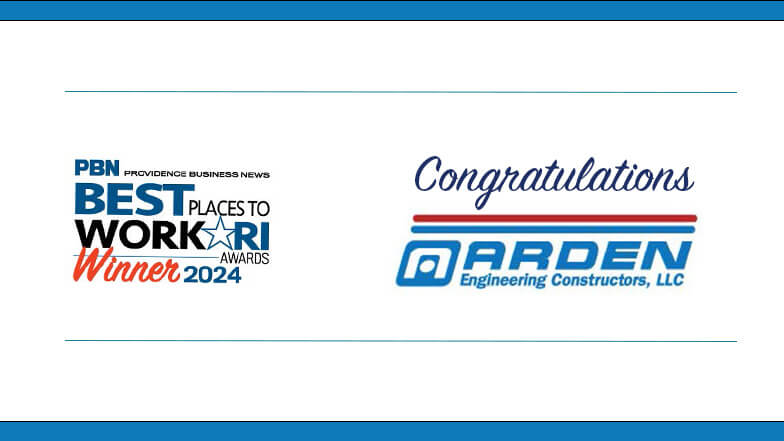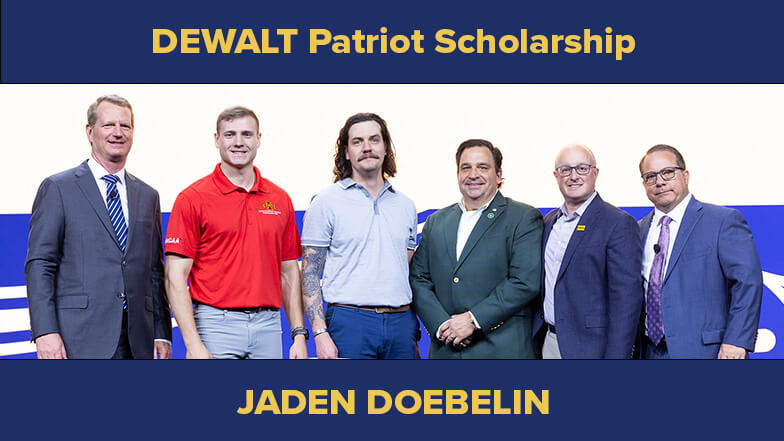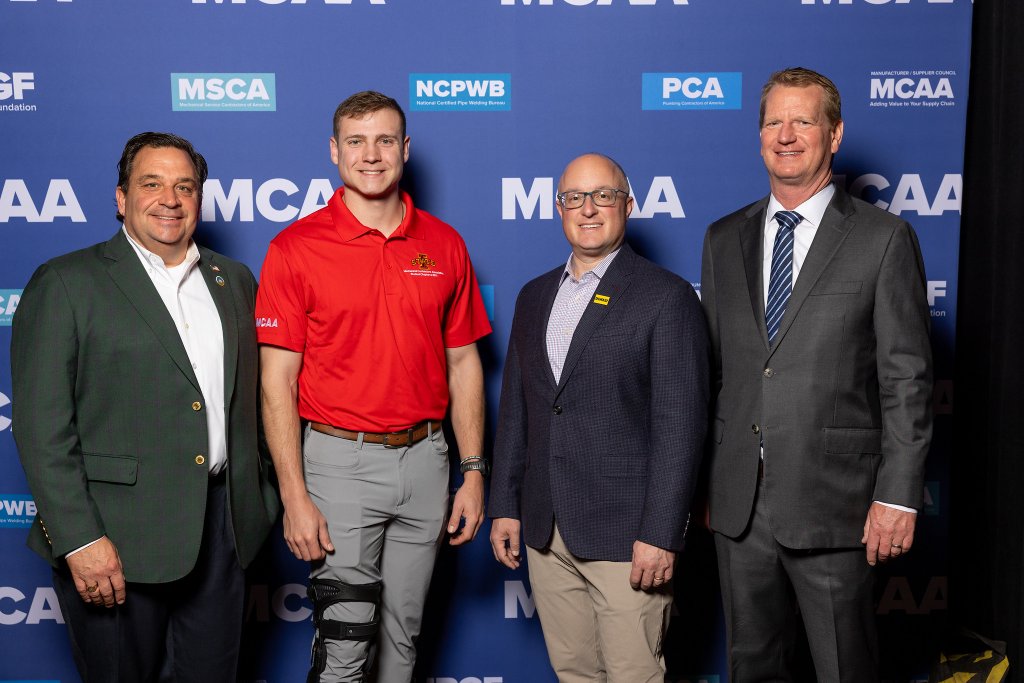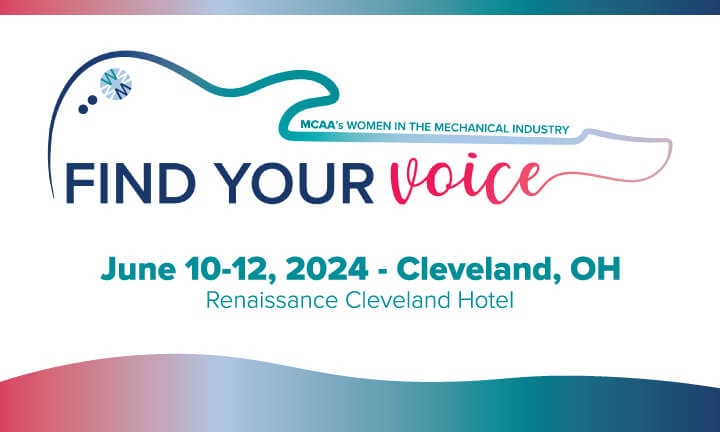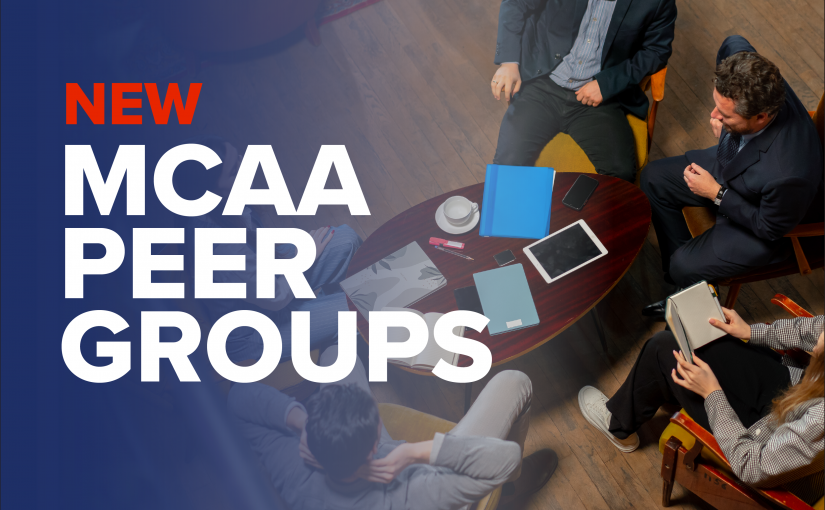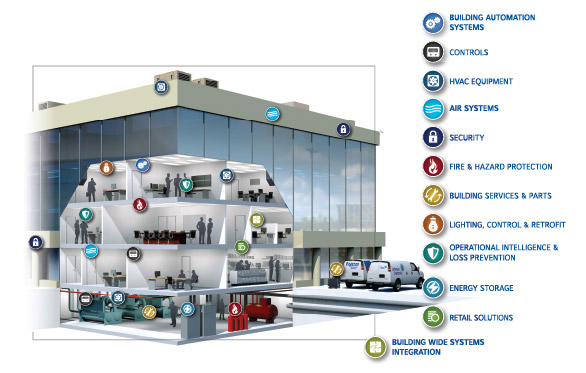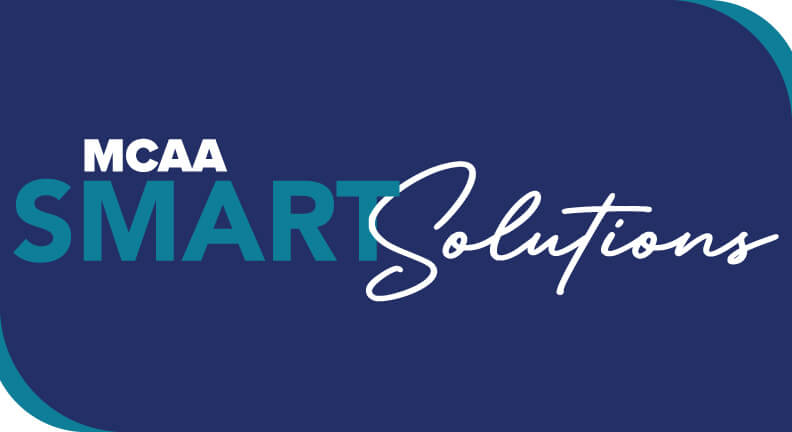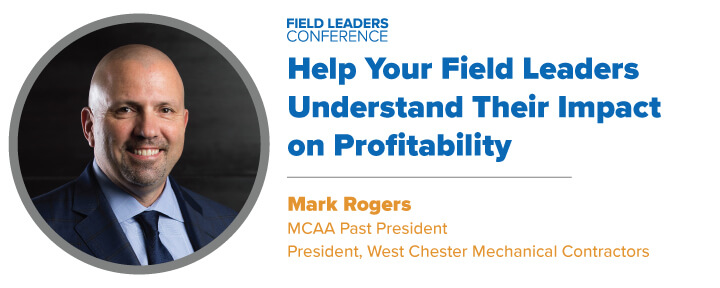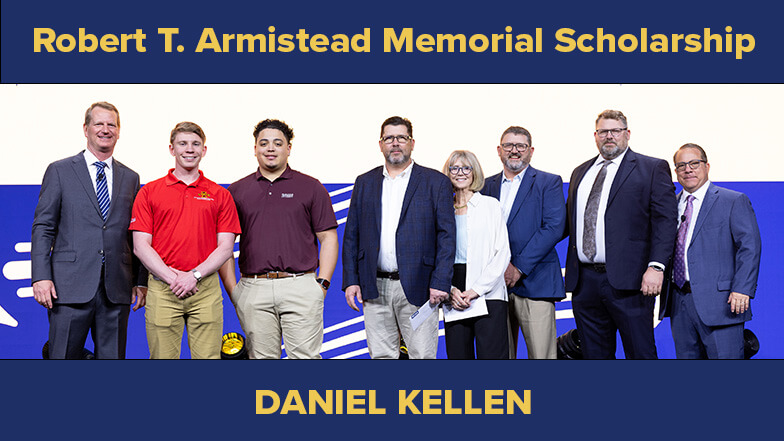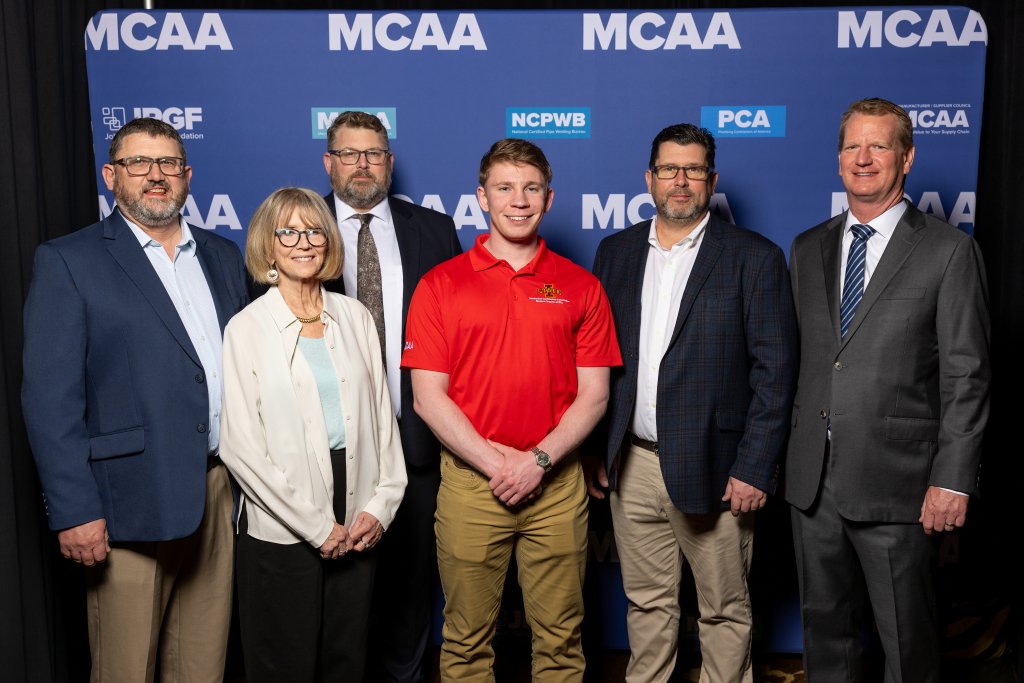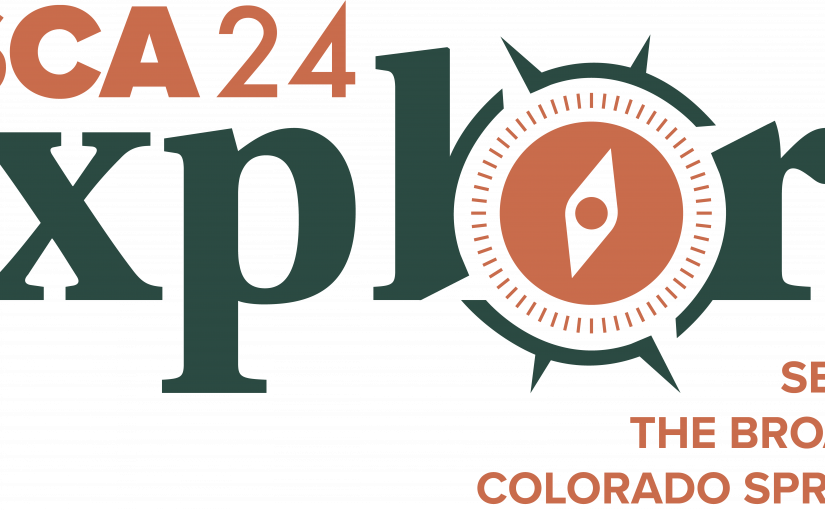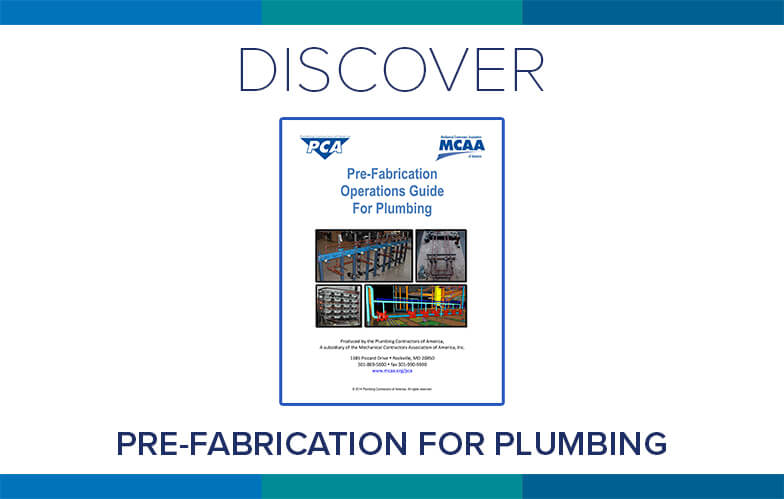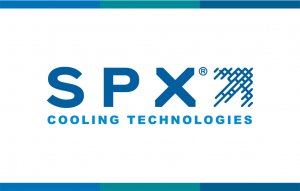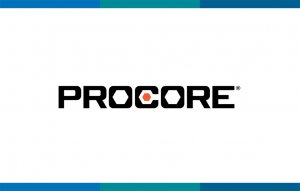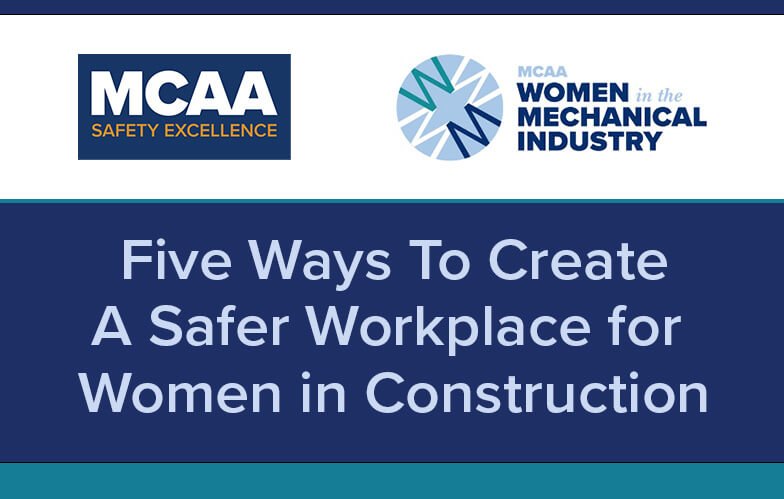MCAA Government Affairs Update for May 4, 2024: The Latest Developments Impacting Our Industry
As part of its ongoing commitment to protecting your livelihood and setting the stage for a bright future, MCAA has secured the services of Longbow Public Policy Group to advise our MCAA Government Affairs Committee (GAC). GAC Chair, Jim Gaffney will be passing along information relative to our industry on a regular basis.
On Friday, May 3, 2024 MCAA Lobbying Firm, Longbow Public Policy Group provided the following information:
This week, as Congress returned from the one-week Passover recess, the focus in the House was on whether Rep. Marjorie Taylor Greene (R-GA) would force a vote on her motion to oust House Speaker Mike Johnson (R-GA) following passage of a foreign aid package for Ukraine, Israel, and U.S. allies in Asia. On Tuesday, House Democrats announced they will vote to table any motion to remove Johnson from the Speakership, with House Minority Leader Hakeem Jeffries saying it was “time to turn the page on this chapter of Pro-Putin Republican obstruction.” Despite Democrats’ announcement, however, Greene said on Wednesday that she will move next week to oust Johnson. Notably, Greene said she was moving forward despite Republican National Committee Chair Michael Whatley, who was handpicked by former President Trump, personally asking Greene not to move forward with her motion to vacate. Once Greene makes her motion “privileged,” the House will have two legislative days to hold a vote on the motion or a vote to table it. Speaker Johnson responded to Greene’s announcement saying he did not think she was proving to be a serious lawmaker. Depending on what day Greene makes good on her threat, it may complicate the House schedule during the CEA National Issues Conference and the Hill meetings MCAA members are supposed to have while in D.C. Another interesting new dynamic around the CEA National Issues Conference is that Texas Democrat Henry Cuellar, who was invited to speak at our conference on Tuesday, was indicted today along with his wife on charges of taking more than $600,000 in bribes from two foreign entities. MCAA did not invite Cuellar, and at this we have not heard that he is cancelling his appearance, although the association that invited him has not been able to confer with anyone in his office about this late Friday development. We are making plans to cover any gap in the schedule if Rep. Cuellar ends up not coming on Tuesday.
As to more substantive matters, the MCAA lobbying team was busy this week rallying opposition to a recently introduced Congressional Review Act (CRA) resolution to nullify the Federal Acquisition Regulatory (FAR) Council’s MCAA-supported file rule implementing President Biden’s Executive Order on Project Labor Agreements, as discussed in more detail below. We were also busy on the House side with Acting Labor Secretary Julie Su’s appearance before the House Education and the Workforce Committee to testify on President Biden’s fiscal year 2025 budget request for the Labor Department. We also continued fighting the CRA resolutions to nullify the Department of Labor’s final rules on Davis-Bacon and Independent Contractor status.
On the Senate side, Senate lawmakers this week labored to pass the Federal Aviation Administration Reauthorization ahead of a May 10th expiration. Advancing the legislation has been a slog, however, as Senators argue over whether to include certain non-germane amendments to the must-pass legislation, including provisions related to cannabis banking, cryptocurrency, compensation for Cold War-ear nuclear worker exposed to radiation, and more. On Wednesday, the Senate voted 89-10 to begin consideration of the bill and is expected to resume consideration of the bill when Senators return to D.C. next week. Among the issues of interest to MCAA in this bill is continued authorization for billions of dollars in funds to modernize airport terminals that was initially included in the Bipartisan Infrastructure Law.
On the regulatory front, we were busy following up with DOL about our concerns over the recently proposed apprenticeship rule and getting some answers to our questions about the final FTC rule banning non-competition agreements.
MCAA Issues and Interests
Project Labor Agreements
MCAA Letter Opposing Resolution Seeking to Nullify PLA Final Rule
As Congress returned this week, Rep. Clay Higgins (R-LA) introduced a new Congressional Review Act resolution (H.J. Res. 132) to nullify the Federal Acquisition Regulatory Council’s MCAA-supported final rule on project labor agreements (PLAs). Consistent with the plans laid with GAC Chair Gaffney on Wednesday, the MCAA lobbying team submitted a letter signed by Chair Gaffney to the leadership of the House Oversight and Accountability Committee opposing the CRA. The letter highlighted points from Independent Project Analysis (IPA) study that the Mechanical Contractors Association Fund commissioned and that MCAA cited at length in its comments supporting this final rule. MCAA’s rapid and substantive letter was appreciated by Ranking Member Jamie Raskin’s (D-MD) staff, who reached out to discuss the CRA. In these discussions we learned that Rep. Higgins is currently attempting to add his CRA resolution to the agenda for an upcoming Committee mark-up. The staff was also very interested in the IPA study and believed it would help them to argue against nullifying this final rule. Having shared our arguments with the relevant committee, we then began reaching out to other members to make the case against this CRA resolution.
NLRB Joint Employer Rule
Today, President Biden finally made good on his promise to veto the CRA resolution to nullify the MCAA-supported NLRB Joint Employer Rule. MCAA has been lobbying to get the President to fulfill his pledge early this year to veto this CRA and we are pleased that he has made good on it. The President and his team seem comfortable rejecting CRA resolutions on high-profile labor issues, which is helpful if we cannot bottle up other pending CRAs we are currently fighting on Capitol Hill. White House staff did, however, make clear that unions and their employer partners need to “fight the good fight” and not take White House vetoes for granted. It certainly helped that this CRA passed by the narrowest of margins in the Senate. So we need to ensure we keep votes on future CRAs close to encourage White House engagement should it be required.
Davis-Bacon
Continuing to Fight CRA Resolution to Rescind Davis-Bacon Rule
In addition to advocating against the PLA CRA above, the MCAA policy team was busy this week following up on our advocacy to defeat the CRA to rescind the Department of Labor’s recent MCAA-supported Davis-Bacon rule. We continue to feel confident that we can defeat this effort.
Independent Contractor
This week we continued our lobbying against the CRA resolution to nullify the independent contractor rule. We view this as a harder fight than the CRAs on Davis-Bacon and PLAs. We continue meetings and still feel we have a fighting chance to prevail on this even if we are not as confident as we are on other CRA fights.
Acting Labor Secretary Su Testifies on DOL’s FY2025 Budget Request
Heading into Wednesday, the MCAA lobbying team laid the groundwork to push back on attacks we knew would be made against Labor Department Rules we support during the House Education and the Workforce Committee hearing on the Department of Labor’s fiscal year 2025 budget at which Acting Labor Secretary Julie Su testified. As anticipated, at the hearing, Republicans criticized the President’s DOL budget for requesting funds to implement the MCAA-supported independent contractor rule and the MCAA-supported Davis-Bacon rule. MCAA did not disagree with all of the Republican grievances aired at the hearing. Specifically, Republicans attacked the DOL’s proposed rule on “National Apprenticeship System Enhancements,” albeit for reasons different from the ones MCAA and the UA raised in joint comments on the rule in March and in subsequent lobbying on the rule. Republicans also threatened to subpoena Su for information on the Department’s return-to-work plan, saying DOL, “has failed to make any meaningful efforts to respect taxpayer dollars and return to work in person.”
For their part, Democrats on the Committee, led by Ranking Member Bobby Scott (D-VA), applauded Su for her leadership of the Labor Department, saying that under her leadership, “the Department of Labor has supported registered apprenticeship and championed a pro-worker regulatory agenda” that includes the rulemakings MCAA is now defending against CRA resolutions of disapproval.
The hearing largely followed the narrative we expected and we developed some goodwill by providing staff useful background information on the issues in advance.
Apprenticeship and Worker Training
DOL Rule on “National Apprenticeship System Enhancements”
This week the MCAA lobbying team continued trying to persuade the Labor Department and members of Congress with authority over the department to address concerns raised about the recently issued proposed rule on “National Apprenticeship System Enhancements” on which MCAA filed joint comments with the UA. The proposed rule continues to face bipartisan opposition for a myriad of different reasons. Members of both parties, however, continue to agree with the MCAA that the rule as proposed does more harm than good. Over the coming weeks we will continue pressing lawmakers to echo specific suggestions for improving the rule that were highlighted in the joint MCAA-UA comment letter.
ETA to Hold Meetings of the Advisory Committee on Apprenticeship on June 4 and 5, 2024
The Employment and Training Administration (ETA) announced public meetings of the Advisory Committee on Apprenticeship (ACA) on June 4 – 5, 2024 to onboard the new membership and address the following agenda items: (1) updates on the National Apprenticeship System—which may extend to discussion of the pending apprenticeship proposed rule MCAA is lobbying; (2) a discussion on federal, state, and international initiatives and partnerships; (3) a discussion on the ACA Road Map and planned activities for the future term; and (4) public comments. Meeting and agenda updates will be posted on the ACA website here.
The meetings will be held on June 4, 2024 from 1:30pm to 4pm ET and on June 5, 2024 from 9:30am to 4:30pm ET. The meetings will be available to the public as follows: (1) in-person at the Department of Labor, Frances Perkins Building located at 200 Constitution Avenue, N.W., Washington, DC, 20210; (2) virtually through Webex; and (3) by teleconference. Those who intend to participate in-person must register by email to AdvisoryCommitteeonApprenticeship@dol.gov by May 28, 2024.
There is no registration requirement for those who intend to participate virtually, and the meetings can be accessed: (1) here on June 4, 2024 using access code 2824 377 2245 and password Welcome!24; and (2) here on June 5, 2024 using access code 2831 404 4991 and password Welcome!24. The telephone number for both meetings is 877-465-7975, and the access codes and passwords are as follows: (1) for June 4, 2024, the access code is 2824 377 2245 and the password is 93526631; and (2) for June 5, 2024, the access code is 2831 404 4991 and the password is 93526631.
Non-Competes – FTC Releases Final Rule Banning Noncompete Agreements
On April 23rd, the Federal Trade Commission (FTC) adopted by a 3-2 vote a revised, final version of its Noncompete Rule. This final rule will formally publish in the Federal Register on May 7, 2024 and will take effect 120 days after publication. Once it takes effect, people can report information about a suspected violation of the rule to the FTC Bureau of Competition by emailing noncompete@ftc.gov. It is already subject to a lawsuit filed by the U.S. Chamber of Commerce in federal court in Texas.
The FTC rejected the suggestion in MCAA’s comments to exempt construction from the rule. In general terms, the final rule will: (1) apply to all entities subject to FTC jurisdiction (most notably excepting bona fide non-profits); (2) ban new non-competes; (3) apply to “workers,” broadly defined to include independent contractors, apprentices, volunteers, etc.; and (4) require rescission of existing non-competes and use of prescribed notices to workers that “existing” non-competes are not enforceable, provided that existing agreements with “senior executives,” as defined in the rule, may remain in force, but new ones may not be imposed. The final rule also allows non-competes in the context of the bona sale of a business and removes an ownership threshold in the proposed rule for such transactions.
Having devoted considerable time to reading the entire 570 pages of the pre-publication version of the final rule, we are increasingly convinced that it will not apply to most scholarship loan agreements because of limitations on the FTC’s jurisdiction over bona fide nonprofit entities under the rather unique analysis the FTC uses as explained in the final rule. This of course assumes that these agreements are entered into by jointly-trusteed training funds that are bona fide tax-exempt 501(c)(3) entities. We think these jurisdictional limits may also address concerns we have about this rule’s application to restrictions that curtail the ability of UA retirees who are taking their pension to return to work on the trade that could otherwise be deemed non-competes under this final rule. These issues and more aspects about the rule are part of the Longbow presentation for Monday’s GAC meeting and we will have a fulsome overview of the final rule with our next regulatory report.
Other Interesting Things Since Our Last Report
Thursday May 2nd
- While in Wilmington, NC, the President announced $3 billion in EPA funding through the Bipartisan Infrastructure Law to replace toxic lead pipes, and an additional $90 million in HUD funding to reduce residential health hazards in public housing, including lead-based paint hazards, carbon monoxide, mold, radon, fire safety, and asbestos. The Biden EPA released more details on the $3 billion in Bipartisan Infrastructure Law funding to identify and replace lead service lines in every state and territory to prevent exposure to lead in drinking water. The Lead Service Line-specific formula used to allot these funds allows states to receive financial assistance commensurate with their need, meaning that states with more projected lead service lines receive proportionally more funding. The EPA also released a new memorandum clarifying how states can use this funding. A separate memorandum from the Office of Water that includes the allotments for each state is available here.
- The U.S. Commerce Department and tech giants Intel and Micron announced a partnership to boost women’s participation in the semiconductor construction workforce with the launch the voluntary CHIPS Women in Construction Framework for companies, contractors, unions and others to recruit and retain women and other economically disadvantaged individuals. Under the program companies will offer services such as childcare and transportation and invest in training as well as prevent and address harassment and discrimination. Intel and Micron are the first companies to commit to the program. Commerce Secretary Gina Raimondo issued a statement saying: “If we are going to meet the national and economic security imperatives of the CHIPS Program, we are going to have to figure out how to fill the hundreds of thousands of jobs we are creating, and we won’t fill those jobs without growing our construction workforce to include more women.”
- The FBI, CISA, EPA, and other federal agencies issued an advisory yesterday warning North American water treatment system operators that pro-Russia activities are “targeting and compromising” operational technology platforms that underpin wastewater and water treatment systems, at times posing physical threats to safety.
- OSHA released a new safety overview entitled “Working in Outdoor and Indoor Heat Environments” in which it recommends steps to prevent heat injury and illness in indoor and outdoor settings. Recommended actions include: “Engineering controls such as air conditioning, with cooled air, and increased air flow, leading to increased evaporative cooling, can make the workplace safer. Other options for keeping body temperatures down in warm environments include making changes to workload and schedules. For example, empower supervisors and workers to slow down physical activity like reducing manual handling speeds or scheduling work for the morning or shorter shifts with frequent rest breaks in the shade or at least away from heat sources. Supervisors can encourage workers in warm environments to drink hydrating fluids. At a minimum, all supervisors and workers should receive training about heat-related symptoms and first aid.”
- The Biden Labor Department (DOL) announced $98 million in YouthBuild program grants, ranging from $700,000 to $1.5 million each, to 72 organizations in 30 states and Guam to support pre-apprenticeships for young people aged 16-24, who are neither enrolled in school or in the labor market, for jobs in construction and other high-demand industries, including manufacturing and logistics, healthcare, hospitality, information technology, and culinary arts.
Wednesday, May 1st
- The Interior Department’s Bureau of Land Management (BLM) published a final rule on reduced costs for use of federal land for renewable energy projects that relies on BLM’s inherent authority to set lease terms for federal lands to adopt 20% cost-reduction incentives for solar and wind projects that use a project labor agreement (PLA) or build with domestically sourced iron, steel, and construction materials. The final rule discusses at length the benefits to the government of using PLAs. This final rule is a significant policy development because BLM created the incentive to use PLAs in the absence of any congressional directive to do so akin to language in the Inflation Reduction Act. This final rule could serve as a model for other agencies to rely on general permitting and resource protection authorities to impose similar incentives for PLAs and labor standards that encourage the use of unionized construction even in the absence of congressional direction to do so. Such actions are something that MCAA and its partners in the unionized construction industry have been encouraging. We now need to see if we can replicate this model elsewhere.
Tuesday, April 30th
- The Labor Department (DOL) issued a blog post highlighting the first annual Youth Apprenticeship Week that will be held from May 5 – 11, 2024, during which there will be a series of events touting the benefits and value of Registered Apprenticeship programs for those aged 16–24.
- The Energy Department (DOE) announced more than $78 million in funding from the President’s Bipartisan Infrastructure Law through the Energy Improvements Rural or Remote Areas program for 19 projects in Illinois, Alabama, Maine, Alaska, Mississippi, Oklahoma, Washington State, Colorado, Montana, Kentucky, North Carolina, and West Virginia to develop and deploy sustainable clean energy solutions and expand access to reliable and affordable energy in rural and remote communities. A list of the projects selected to receive funding is available here.
- The Energy Department (DOE) finalized energy-efficiency standards for a range of residential water heaters, requiring most common-sized electric water heaters to achieve efficiency gains with heat pump technology. The new standards are estimated to save households approximately $7.6 billion per year on energy and water bills and reduce 332 million metric tons of carbon dioxide emissions, equivalent to the combined annual emissions of nearly 43 million homes.
Monday, April 29th
- The Equal Employment Opportunity Commission (EEOC) published “Enforcement Guidance on Harassment in the Workplace” to reflect developments in the EEOC’s interpretation of and process for enforcing the discrimination laws under its purview. The EEOC proposed the new guidance for public comment last October and received over 38,000 comments on it. The final guidance clarifies the standards of liability for harassment and a hostile work environment with numerous examples of impermissible conduct across the various anti-discrimination laws the EEOC enforces. The new guidance supersedes the following longstanding EEOC enforcement guidance documents: (1) Compliance Manual Section 615: Harassment (1987); (2) Policy Guidance on Current Issues of Sexual Harassment (1990); (3) Policy Guidance on Employer Liability under Title VII for Sexual Favoritism (1990); (4) Enforcement Guidance on Harris v. Forklift Sys., Inc. (1994); and (5) Enforcement Guidance on Vicarious Employer Liability for Unlawful Harassment by Supervisors (1999). Along with the final guidance, the EEOC issued a “Summary of Key Provisions,” a document for employees, and a fact sheet for small businesses. The final guidance highlights: (1) the EEOC’s 2023 Promising Practices for Preventing Harassment in the Federal Sector technical assistance document, which provides practical tips for preventing and addressing harassment within the federal civilian workforce; (2) the EEOC’s 2017 Promising Practices for Preventing Harassment technical assistance document; and (3) the EEOC’s 2016 Report of the Co-Chairs of the Select Task Force on Harassment in the Workplace, which included findings and recommendations about harassment prevention strategies.
- The Internal Revenue Service (IRS) issued Notice 2024-36 to announce the 2024 allocation round of the Section 48C, “Qualifying Advanced Energy Project Credit” to allocate approximately $6 billion of Section 48C credits from the President’s Inflation Reduction Act. The Section 48C Portal will open no later than May 28, 2024 for owners of clean energy manufacturing and recycling projects, greenhouse gas emission reduction projects and critical material projects to submit a concept paper and begin the process of seeking a Section 48C credit allocation.
- The Labor Department’s Wage and Hour Division released a new Field Assistance Bulletin, 2024-01 entitled, Artificial Intelligence and Automated Systems in the Workplace under the Fair Labor Standards Act (FLSA) and Other Federal Labor Standards. The bulletin warns employers that artificial intelligence (AI) systems used to monitor worker productivity, breaktime, waiting time, and geolocation will often not suffice to provide compliant records regarding matters like an employee’s hours worked. It also explains how the data measured and captured by AI software will not often be congruent with FLSA concepts like “hours worked.” Finally, the Bulletin also details issues that may arise with an employer’s compliance with the Family and Medical Leave Act, the PUMP for Nursing Mothers Act, and other federal leave laws if employers rely on AI systems without adequate human intervention to ensure compliance with these laws and to avoid unlawful retaliation.
- The Energy Department (DOE) announced a series of actions delivering on key elements of the Executive Order on the Safe, Secure, and Trustworthy Development and Use of Artificial Intelligence (AI), including issuing reports on AI’s near-term potential to support the growth of America’s clean energy economy and long-term opportunities and challenges in AI. DOE also launched a new website that showcases DOE-developed AI tools and foundation models useful for basic and applied science. DOE also announced it is investing $13 million in the VoltAlc Initiative to use AI to streamline siting and permitting at the federal, state, and local levels, and establishing the Powering AI and Data Center Infrastructure working group to provide recommendations on meeting energy demands for AI and data center infrastructure.
Thursday, April 25th
- The Department of Labor’s Office of Federal Contract Compliance Programs (OFCCP) announced the designation of additional federally funded construction projects in its Mega Construction Project (Megaproject) Program. The Megaproject Program is an effort to assist contractors and subcontractors on federal construction projects valued at $35 million or more to recruit and hire from a diverse applicant pool that includes workers from underrepresented communities. The 16 selected projects include: (1) the Appalachian Hydrogen Hub in Pennsylvania, Wisconsin, and Ohio; (2) the Alliance for Renewable Clean Hydrogen Energy Systems (ARCHES) Project in California; (3) the Brightline West High-Speed Intercity Passenger Rail System Project in California and Nevada; (4) the Chicago Union Station Mail Platform Reactivation Project in Illinois; (5) the Gateway Hudson Tunnel Project in New York and New Jersey; (6) the Heart Butte Safety of Dams Modification Project in North Dakota; (7) the HyVelocity Hydrogen Hub Program in Texas; (8) the Midwest Alliance for Clean Hydrogen Project in Illinois, Indiana, and Michigan; (9) the Pajaro River at Watsonville Project in California; (10) the Penn Station Access Program in New York; (11) the Raleigh to Richmond Innovating Rail Program in North Carolina; (12) the Road Improvements to U.S. 49 from Bentonia to Yazoo City Project in Mississippi; (13) the Transforming Rail in Virginia Phase 2 FSP Application Project in Virginia; (14) the Upper Mississippi River – Illinois Waterway System Project in Illinois and Missouri; (15) the Upper Ohio Navigation Project in Pennsylvania; and (16) the U.S. 64 Corridor Improvements Project in New Mexico. The list of newly-designated projects is available here.
- The Federal Aviation Administration (FAA) announced the award of $76 million from the President’s Bipartisan Infrastructure Law for 45 airport-related projects in Alaska, Alabama, Arkansas, California, Colorado, Connecticut, Florida, Indiana, Kansas, Kentucky, Louisiana, Maryland, Maine, Michigan, Montana, North Dakota, Nevada, New York, Ohio, Oregon, South Dakota, and Washington State. Among the airports receiving funding include: (1) $6.4 million to Colorado Springs Airport to rehabilitate the existing terminal building to accommodate a 14,000 square foot Federal Inspection Service facility to allow passengers to clear customs more efficiently; (2) $3 million to Melbourne Orlando International Airport to fund the first phase of the terminal building rehabilitation; (3) $1.8 million to South Bend International Airport in Indiana to reconstruct 8,500 feet of the existing Taxiway B pavement that has reached the end of its useful life; (4) $2.4 million to Easton Airport in Maryland to improve the Runway 22 safety area to enhance the safety operations at the airport; and (5) $8.3 million to Bangor International in Maine to rehabilitate 7,436 feet of Runway 15/33 to maintain the structural integrity of the pavement and to minimize debris. The full list of airports receiving funding is available here.
- The Environmental Protection Agency (EPA) announced a set of final rules to reduce pollution from fossil fuel-fired power plants. The set of final rules include: (1) a final rule for existing coal-fired and new natural gas-fired power plants that would ensure that all coal-fired plants that plan to run in the long-term and all new baseload gas-fired plants control 90 percent of their carbon pollution; (2) a final rule strengthening and updating the Mercury and Air Toxics Standards for coal-fired power plants, tightening the emissions standard for toxic metals by 67 percent and finalizing a 70% reduction in the emissions standard for mercury from existing lignite-fired sources; (3) a final rule to reduce pollutants discharged through wastewater from coal-fired power plants by more than 660 million pounds per year; and (4) a final rule that will require the safe management of coal ash that is placed in areas that were unregulated at the federal level.
- The Federal Energy Regulatory Commission (FERC) voted 2-1 to authorize construction of three natural gas projects over the objections of a Democratic FERC Commissioner. The approved projects are the: (1) El Paso Natural Gas Co.’s project in Hudspeth County, Texas to install a nearly two-mile 30-inch-diameter pipeline extension; (2) Great Basin Gas Transmission Company’s project in Douglas, Lyon, and Storey Counties, Nevada to install about 3.4 miles of upsized or looped pipeline segments; and (3) Florida Gas Transmission Company’s project in St. Landry, East Baton Rouge, and Washington Parishes, Louisiana and Perry County, Mississippi to upgrade four compressor stations. FERC Chairman Willie Phillips (D) joined with Republican Commissioner Mark Christie to approve the natural gas projects. Commissioner Allison Clements (D) voted against the projects over concerns about the projects’ greenhouse gas emissions.
Wednesday, April 24th
- The Department of Labor announced the launch of an interactive map to help unions, workers, and the public learn more about the tens of thousands of jobs being created nationwide by more than 1,000 planned energy projects. The map allows users to sort planned clean energy projects by sector and state and learn more about each project’s location, name, status and size, companies involved and the estimated number of construction jobs supporting the project.
- The Department of Energy (DOE) announced a final rule entitled, “Clean Energy for New Federal Buildings and Major Renovations of Federal Buildings.” The final rule, which implements the Energy Independent and Security Act of 2007, requires federal agencies to phase out fossil fuel usage in new federal building construction or major renovation by achieving a 90% reduction in fossil fuel use for new projects started between fiscal years 2025 and 2029 and eliminating on-site fossil fuel usage in new projects beginning in 2030. The rule applies to new construction and major renovations that exceed certain cost thresholds, including: (1) $3.6 million in 2024 dollars for federally owned public buildings; (2) $3.8 million in 2024 dollars for federally owned non-public buildings; and (3) $1.8 million in 2024 dollars for leased federal buildings. DOE estimates that over the next 30 years, the final rule will reduce carbon emissions from federal buildings by 2 million metric tons and methane emissions by 16,000 tons—an amount roughly equivalent to the emissions generated by nearly 310,000 homes in one year, while also reducing infrastructure costs. More information on the final rule is available on the DOE website here.
- The Federal Highway Administration (FHWA) announced $148 million in grants to Alabama, California, Florida, Georgia, Hawaii, Indiana, Louisiana, Maryland, New Jersey, Texas, and Washington State under the first round of the Reduction of Truck Emissions at Port Facilities Grant Program created by the President’s Bipartisan Infrastructure Law. In this first round of grant awards, FHWA has funded 16 projects that reduce pollution in communities adjacent to ports. Specific truck emissions reductions implemented include: (1) constructing electric vehicle charging infrastructure; (2) replacing diesel-powered trucks serving ports with zero or low emissions electric or alternative fuel-powered trucks; (3) employing port roadway access improvements; and (4) studying technology enhancements to reduce truck emissions. The full list of grant awards is available here.
- House Ways and Means Committee Chair Jason Smith (R-MO) and Tax Subcommittee Chair Mike Kelly (R-PA) announced the formation of ten “Committee Tax Teams,” comprised of Ways and Means Republican members, to study key tax provisions from the 2017 Tax Cuts and Jobs Act that are set to expire in 2025 and identify legislative solutions. The Tax Teams are comprised of Republican Committee members and are assigned specific areas of tax policy for review, including: (1) the American Workforce Tax Team which is chaired by Rep. Darin LaHood (R-IL) and includes Rep. Mike Carey (R-OH), Rep. Brad Wenstrup (R-OH), Rep. Lloyd Smucker (R-PA), and Rep. Mike Fitzpatrick; (2) the American Manufacturing Tax Team which is chaired by Rep. Vern Buchanan (R-FL) and includes Rep. Greg Murphy (R-NC), Rep. Jodey Arrington (R-TX), Rep. Claudia Tenney (R-NY), and Rep. Nicole Malliotakis (R-NY); (3) the Supply Chains Tax Team which is chaired by Rep. Mary Miller (R-IL) and includes Rep. David Kustoff (R-TN), Rep. Brad Wenstrup (R-OH), Rep. Drew Ferguson (R-GA), Rep. Michelle Fishbach (R-MN); and Rep. Randy Feenstra (R-IA); (4) the Working Families Tax Team which is chaired by Rep. Brian Fitzpatrick (R-PA) and includes Rep. Nicole Malliotakis (R-NY), Rep. Blake Moore (R-UT), Rep. Michelle Steel (R-CA), and Rep. Mike Carey (R-OH); (5) the Main Street Tax Team which is chaired by Rep. Lloyd Smucker (R-PA) and includes Rep. Greg Steube (R-FL), Rep. Vern Buchanan (R-FL), Rep. Adrian Smith (R-NE), Rep. Jodey Arrington (R-TX), and Rep. Beth Van Duyne (R-TX); (6) the Rural America Tax Team which is chaired by Rep. Adrian Smith (R-NE) and includes Rep. Michelle Fishbach (R-MN), Rep. Randy Feenstra (R-IA), Rep. David Kustoff (R-TN), and Rep. Greg Steube (R-FL); (7) the New Economy Tax Team which is chaired by Rep. David Schweikert (R-AZ) and includes Rep. Beth Van Duyne (R-TX), Rep. Greg Murphy (R-NC), Rep. Claudia Tenney (R-NY), and Rep. Michelle Steel (R-CA); (8) the Community Development Tax Team which is chaired by Rep. Mike Kelly (R-PA) and includes Rep. Claudia Tenney (R-NY), Rep. Darin LaHood (R-IL), Rep. Blake Moore (R-UT), and Rep. Mike Carey (R-OH); (9) the U.S. Innovation Tax Team which is chaired by Rep. Ron Estes (R-KS) and includes Rep. Michelle Steel (R-CA), Rep. David Schweikert (R-AZ), Rep. Drew Ferguson (R-GA), Rep. Kevin Hern (R-OK), and Rep. Greg Murphy (R-NC); and (10) the Global Competitiveness Tax Team which is chaired by Rep. Kevin Hern (R-OK) and includes Rep. Blake Moore (R-UT), Rep. Mike Kelly (R-PA), Rep. Ron Estes (R-KS), Rep. Mary Miller (R-IL), and Rep. Randy Feenstra (R-IA).
Tuesday, April 23rd
- The Employee Benefits Security Administration (EBSA) announced the publication of its final rule entitled, “Retirement Security Rule: Definition of an Investment Advice Fiduciary”, which updates the definition of an investment advice fiduciary under ERISA and the Internal Revenue Code. Specifically, the final rule and related amended prohibited transaction exemptions require trusted investment advice providers to give prudent, loyal, and honest advice free from overcharges. These fiduciaries must adhere to high standards of care and loyalty when recommending investments and avoid recommendations that favor the investment advice providers’ interests—financial or otherwise—at the retirement savers’ expense. Under the final rule and amended exemptions, financial institutions overseeing investment advice providers must have policies and procedures to manage conflicts of interest and ensure providers follow these guidelines. The updated definition of an investment advice fiduciary takes effect on September 23, 2024 and applies when trusted financial services providers give compensated investment advice to retirement plan participants, individual retirement account owners and plan officials responsible for administering plans and managing their assets. Additional information about this final rule is available on the EBSA website here.
- The Department of Labor (DOL) released its final overtime rule updating the salary thresholds below which workers must be paid overtime under the Fair Labor Standards Act. The new final rule takes effect July 1, 2024, and requires employers to pay overtime to most workers paid below $844 a week ($43,888 annually) regardless of their job duties and titles. This is a significant increase from the current threshold of $684 a week ($35,568 annually). Workers above this threshold may be exempt from overtime if their duties qualify them as an exempt executive, professional, or administrative employee under Part 541 of the regulations interpreting the Fair Labor Standards Act (or certain other discrete exemptions, for groups such as outside sales and computer employees). The final rule also raises this threshold to $1,128 a week ($58,656 annually) effective January 1, 2025. Thereafter, the final rule has a mechanism to update this threshold every three years. More information on the final overtime rule is available on the DOL website here.
Monday, April 22nd
- The Department of Health and Human Services (HHS) announced a final rule to prohibit the disclosure of protected health information (PHI) related to lawful reproductive health care. Specifically, the final rule: (1) prohibits the use or disclosure of PHI when it is sought to investigate or impose liability on individuals, health care providers, or others who seek, obtain, provide, or facilitate reproductive health care that is lawful under the circumstances in which such health care is provided, or to identify persons for such activities; (2) requires a regulated health care provider, health plan, clearinghouse, or their business associates, to obtain a signed attestation that certain requests for PHI potentially related to reproductive health care are not for these prohibited purposes; and (3) requires regulated health care providers, health plans, and clearinghouses to modify their Notice of Privacy Practices to support reproductive health care privacy. The text of the final rule is available here and a fact sheet on the final rule is available here.
Around the Country
Northeast
- On April 30th, New York state Sen. Timothy Kennedy (D-NY) won the special election for New York’s 26th Congressional District previously represented by Rep. Brian Higgins (D-NY).
- On April 30th, a new poll found that Sen. Bob Casey (D-PA) is leading Republican Dave McCormick 46% to 39% in the Pennsylvania U.S. Senate race.
West
- On May 3rd, California Assemblymember Evan Low (D) won a recount in the race for California’s 16th Congressional District and will face fellow Democrat Sam Liccardo in November to replace Rep. Anna Eshoo (D) who is retiring.
- On May 3rd, the U.S. Court of Appeals for the Ninth Circuit ordered a lower court to end a climate change lawsuit filed against the federal government by children for the second time, ruling that the children lacked standing because the courts cannot order the federal government to take sweeping, generalized action on greenhouse gas emissions.
- On May 3rd, Colorado Gov. Jared Polis (D) signed legislation that will result in sweeping bans of PFAS “forever chemicals” across a wide range of consumer products.
- On May 1st, the Environmental Protection Agency (EPA) announced that the Biden Justice Department, on behalf of the EPA and the California Attorney General, filed a civil complaint against the city and county of San Francisco. The complaint seeks financial penalties and improvements to remedy San Francisco’s repeated and widespread failures to operate its two combined sewer systems and three sewage treatment plants in a manner that keeps untreated sewage out of San Francisco Bay and its tributaries, streets, beaches and other areas with risk of human contact, which represents a violation of the Clean Water Act and its permits.
- On May 1st, the Transportation Department (DOT) announced that the Build America Bureau has approved its first Transit-Oriented Development (TOD) Transportation Infrastructure Finance and Innovation Act (TIFIA) loan for up to $26.8 million for the Mt. Vernon Library Commons Project in Washington State. The project will include, among other things, a multi-use building with a public library, community center, and electric vehicle chargers along the I-5 Alternative Fuel Corridor.
Midwest
- On May 1st, the Environmental Protection Agency (EPA) announced that Webster, Kentucky will receive technical assistance through the Energy Communities Technical Assistance Pilot Program to enhance community planning capacity related to clean energy transition, including by boosting opportunities for workforce development, training and apprenticeships, leveraging private sector and philanthropic funding assistance, and cleaning up and redeveloping abandoned power plant and mining areas.
- On April 30th, the Labor Department (DOL) announced that it will host an information session on May 8, 2024 in Overland Park, Kansas for current and former nuclear weapons workers and their families employed at covered facilities to discuss the benefits available under the federal Energy Employees Occupational Illness Compensation Program Act, answer questions, assist in filing claims, and provide updates on existing claims.
- On April 30th, a new poll found that Sen. Tammy Baldwin (D-WI) is leading Republican Eric Hovde 48% to 41% in the Wisconsin U.S. Senate race.
Southeast
- On May 1st, the Labor Department announced a hybrid meeting of the Advisory Board on Toxic Substances and Worker Health for Part E of the Energy Employees Occupational Illness Compensation Program Act on May 8 – 9, 2024 from 9am to 5pm and 8:30am to 11:30am, respectively, at the Comfort Inn Oak Ridge, 433 S. Rutgers Ave., Oak Ridge, Tennessee, 37830. Information on how to attend, whether in-person or virtually, will be made available on the Board’s website here no later than 72 hours before the meeting date.
- On April 30th, the U.S. District Court for the Western District of Louisiana rejected Louisiana’s new congressional district map that added “two Black opportunity districts,” finding it violated the Equal Protection Clause of the 14th Amendment to the U.S. Constitution.
- On April 30th, the Labor Department (DOL) announced a statewide survey seeking input from the North Carolina highway construction industry to assist the DOL’s Wage and Hour Division in establishing prevailing wage rates for construction workers on federally funded and assisted construction projects. The survey is available here. There will be two online briefings, on May 21, 2024 and May 23, 2024, to describe the survey process and offer instructions for completing the survey, and registration is available here.
- On April 29th, Aaron Dimmick, a former naval aviator, filed to run in the Republican primary for Florida’s 1st Congressional District against Rep. Matt Gaetz (R-FL).
- On April 26th, Rep. Bill Posey (R-FL) announced he will not seek reelection to Florida’s 8th Congressional District and endorsed former Florida State Senate Mike Haridopolos (R) for the seat.
Southwest
- On April 30th, a new poll showed Rep. Ruben Gallego (D-AZ) leading Republican Kari Lake 45.3% to 43.1% in Arizona’s U.S. Senate race.
- On April 29th, it was reported that there is a growing schism between former President Trump and Arizona Republican Senate candidate Kari Lake. Trump has reportedly ruled her out as a running mate and is openly questioning if she can win the Senate seat in a state that is critical to Trump’s re-election prospects.
